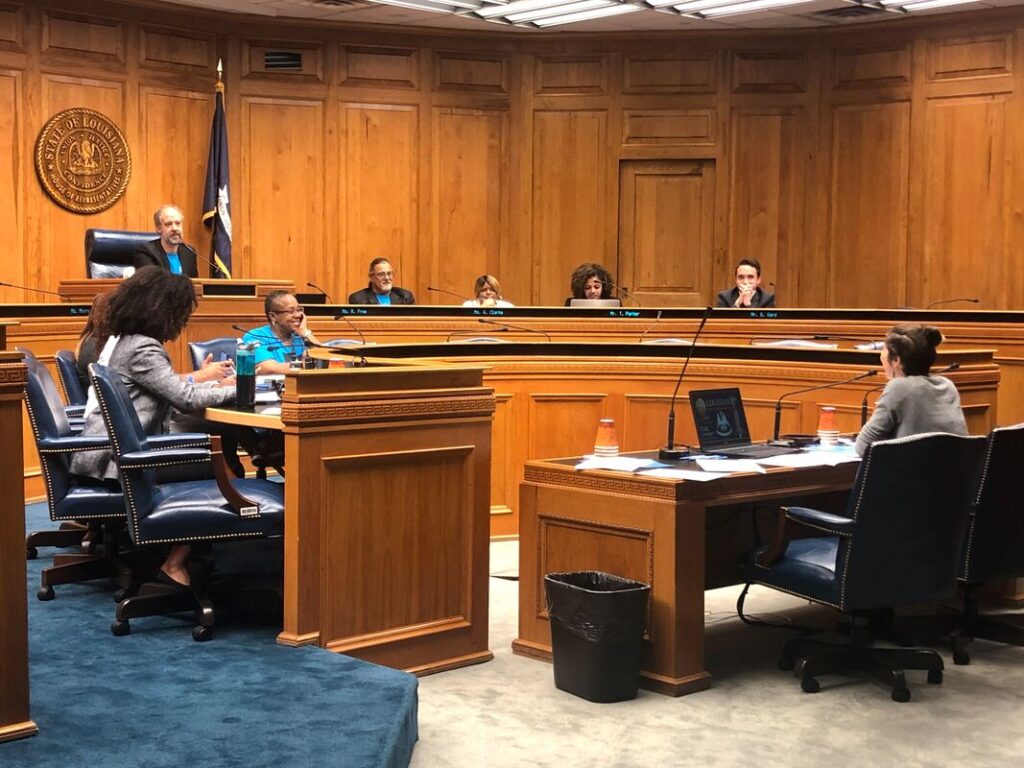
This legislative session we’re introducing our most ambitious line up of bills yet. In order to win them, we need to show up at the Capitol as one strong and unified voice. That means we need more people with direct experiences of incarceration to speak up and speak out about the injustices they have faced. How? Check out these tips for successful advocacy, which work whether we’re sitting in one-on-one meetings with our elected officials, testifying in front of legislative committees, or making a speech in front of an audience on the Capitol steps.
1. Be prepared and brief.
We can expect all types of questions about our bills from both our supporters and the opposition. On top of that, we usually only have a few minutes of a legislator’s time to gain their support. We need to know what we’re going to say and be brief with it! Instead of writing out a full script (which can sound too practiced or, worse, fake) we like to make a list of two or three main points to really hit home, sandwiched by a short introduction and conclusion. Legislators hear so many people speak about bills every day, so use a strong opening statement to really grab their attention. For example, the Justice and Accountability Center of Louisiana is lobbying for bill HB 344, which would ban prisons from putting pregnant women and people with mental illness in solitary confinement. In practicing her testimony for HB 344, which would ban the use of solitary confinement for pregnant women and people with mental illness, Shametria Gonzales opened with, “Ending solitary confinement isn’t only a moral issue, it’s a bipartisan issue.” This hard-hitting and concise phrase sets the tone for a powerful testimony.
2. Be honest.
Our credibility is central to our relationships at the Capitol, so being honest in our conversations and testimonies is a must. There will be times when legislators ask tough questions about the facts of a bill. There’s no need to make something up or exaggerate anything. When we don’t know the answer, the best response we can offer is, “I’m not sure, I’ll find out and get back to you quickly.” Of course, our lived experiences are also our truth, and legislators who have never been incarcerated themselves need to hear them. As long as we stick to what we know, we will be successful.
3. Be respectful.
Speaking of relationships: keep it real, but be respectful. This helps us form new alliances and maintain the old. Even though there are many legislators who might not understand or respect our movement, we never know who’s watching. For example, during committee hearings, it can be tempting to get up to the podium and clap back at a representative or senator who’s not on our side. But if we attack one legislator, we can lose the important votes of their friends that we need to get our bill passed. Phrases like “great question, let me explain” and “I can see where you’re coming from, but” go a long way towards making legislators feel heard, while not compromising our truth or integrity. Challenge the idea, not the person communicating it. Finding a shared value goes a long way, too.
4. Be yourself.
The best thing we can do is to bring our whole selves with us to the Capitol. The building’s halls and chambers are filled with lobbyists who may be great at rattling off facts and figures, but they don’t know much about our lived experiences, if anything. As a community, that’s our greatest asset. “[VOTE] is bringing the directly impacted people,” says Rep. Ted James, the new Chairman of the Justice Committee. “Our personal stories are what move people and the needle.” This work can be tiring and make us want to not share what we know, but just remember that we all have each other’s backs. When we go to the Capitol as a Blue Wave, it’s not just to fight injustice, but to lean on each other in the process, too.
Ready to get engaged?
Got all of the above down pat? Find a bill (or two or five) that you have experience with and get in touch about testifying. A few bill examples from the 2020 Session include:
HB 380 will ensure that someone who is offered a plea deal will be told all of the consequences they’ll face by agreeing to it. If you’ve ever taken a plea bargain and were not fully told ahead of time about how it would affect your ability to find a job, housing or go to school, this bill is for you.
HB 339 will give all incarcerated people, including lifers, a chance to go before the parole board and be considered for release. If you know someone doing life, or were once doing life yourself but got out on a new law, we need to hear from you!
The Fair Chance in Hiring Bill will reduce the number of barriers employers are allowed to set up against people with convictions. Right now, many job applications from people with convictions are tossed out as soon as the employer finds out about it. If this bill passes, employers will only be allowed to reject the application if the conviction is related to the job. “This bill would make it possible for people like me to get more than a minimum-wage job,” says Kisha Edwards, of The First 72+. If you’re in the same boat as Kisha, please consider testifying on this bill!
If you have experience with any of the issues we’re tackling this session, your story can help us win. Drop us a note at admin@vote-nola.org and we’ll get you prepared to testify when the time comes!
